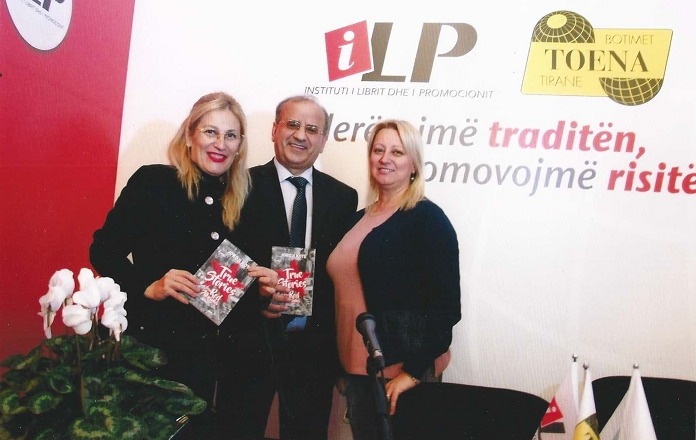A new book on life in Albania under Communist rule by Brussels-based diplomat Jorgji Kote reveals how people managed to survive despite all the hardships under communist rule. “True Stories from Red Albania” (Toena Publishing House, Tirana, 2016) describes Albania in 1945 – 1990. The book includes a preface by British journalist Kate Holman.
Albania, once an isolated country in the Balkans suffering under one of the most severe Communist dictatorships after WWII, is now a member of NATO and a candidate for membership in the European Union. The country still needs to implement reforms but is on the right track to get its application to open accession negotiations approved in the near future.
The dictator Enver Hoxha, who ruled Albania after the defeat of Nazi-Germany until his death in 1985, was responsible for a system where Albania was placed in self-imposed isolation from the rest of the world, even from other Communist countries, with strong internal suppression. It would take another five years until 1990 when democracy was established in Albania.
The author of “True stories from Red Albania”, Dr Jorgji Kote, currently works as a diplomat at the Albanian Embassy in Brussels. Born in Tirana in 1952, he grew up in an extremely poor country under a totalitarian system. He studied English and economy which enabled him to pursue a career as a civil servant and diplomat.
Thanks to his experiences as a youth activist, teacher, tourist guide and interpreter, he got an insight in Albanian society and is the right person to describe this period in Albania’s history. Kote stresses that his book is a personal account and list friends and people he admires in the Albanian “diaspora”, among others in Brussels, whose flourishing Albanian community dates to the 50s.
Ironically, even Hoxha was exposed to the West when he studied in France in the 30s and became the personal secretary of an Albanian diplomat in Brussels.
Through his anecdotes and personal experiences, the author manages to describe in a colourful way the life of both children and adults in Albania during those years. The major moments of the period are captured and serve as a reminder of compulsory atheism, forced volunteering, person cult, poverty and isolation in a one-party state. Hoxha himself is hardly mentioned in the book but his spirit seems floating around.
“Long queues for bread and milk very early in the morning, even 15 years after the liberation (from Nazi-Germany), had become a dreary routine for us all,” Kote writes. Basic food products could for years be bought only in the towns and this in a country where agriculture dominated the economy. Consumer products were largely missing.
During the sixties, a moderate liberty breeze was blowing, especially in the field of arts and literature, and sports also became popular. This might have helped people to cope with the economic difficulties. Following a speech by Hoxha in February 1967, an anti-religious fire broke out which led to over 2,000 churches, mosques, and shrines being pulled down or burnt. Albania officially became an atheist country.
“Christ’s disciples were replaced by the 12 members of the politburo – one could see their portraits everywhere, with Hoxha at the head,” Kote writes. Schools became “revolutionized” and teachers were obliged to start lessons with a reference to Marxism-Leninism.
Despite or because the political oppression, people used humor to make fun about their situation and preferred to laugh and not to cry. The book gives many examples of these jokes. Long hair and beards were forbidden for example, even for tourists - Karl Marx himself would not have been allowed to enter the country. Or that time when an official questioned a lecturer about the statement “Forests are green gold” in the party literature. The lecturer replied: “Well, dear comrade, when crude oil is like black gold for our country, why on earth can’t the forests with the wood be green gold?”
A concrete memory from the Communist period is the hundreds of thousands of bunkers which were built against alleged enemies and foreign threat. Today the bunkers have become tourist sights. Judging by the difficulties that Albania has faced in its transition to a market-oriented democracy, fit to join EU, the Communist period also left other scars on Albanian society.
Many Albanians were forced into exile during the Communist period and hundreds of thousands fled the country as soon as it was possible. But the Albanian people survived the Communist period and can look forward to a better future. As Kote writes in his charming little book, the resilience of the Albanian people was nourished by strong family bonds and a reliance on its cultural heritage.
The Brussels Times

